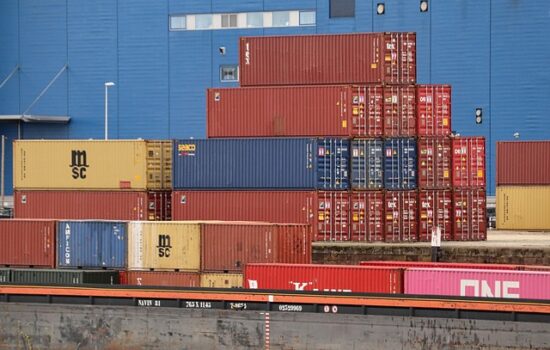🐳 Docker Unboxed: Containerization for Developers & DevOps
🧾 Course Description
Docker is a game-changing tool for modern software development — enabling you to package applications with all their dependencies into lightweight, portable containers.
In “Docker Unboxed”, you’ll learn how to containerize applications, manage images and volumes, and orchestrate services using Docker CLI and Docker Compose. Whether you’re a developer, DevOps engineer, or system admin, this hands-on course teaches you how to simplify deployment, eliminate “it works on my machine”, and build scalable systems from day one.
✅ Key Benefits
- 📦 Package Once, Run Anywhere — Learn to containerize any app with zero dependency hell
- 🔁 Faster Development Cycles — Consistent dev environments using Docker images
- 🌍 Deploy Like a Pro — Use containers in staging, CI/CD, or production
- 🔗 Connect Services Easily — Work with multi-container apps using Docker Compose
- 🧰 Foundation for Kubernetes — Build the skills to move into container orchestration
🎯 Pre-requisites
- Basic understanding of Linux commands (recommended)
- Familiarity with software development or DevOps workflows
- Optional: Prior exposure to Git, APIs, and web apps
📚 Curriculum Breakdown
📘 Module 1: Introduction to Docker
- What is Docker? Containers vs VMs
- Installing Docker (Desktop or CLI)
- Basic commands:
docker version,docker info
📦 Module 2: Working with Docker Images
- Understanding Docker images vs containers
- Pulling and running images (
docker run,docker pull) - Exploring Docker Hub
🏗️ Module 3: Creating Your Own Containers
- Writing a
Dockerfile - Building images using
docker build - Managing images: tag, remove, reuse
🔄 Module 4: Volumes and Persistence
- Why containers are stateless by default
- Mounting volumes to persist data
- Bind mounts vs managed volumes
🌐 Module 5: Networking in Docker
- Bridge, host, and overlay networks
- Exposing ports (
-p) - Linking multiple containers
🧱 Module 6: Docker Compose
- Writing a
docker-compose.ymlfile - Defining multi-container applications (e.g., app + DB)
- Compose commands:
up,down,logs,exec
🛡️ Module 7: Best Practices & Cleanup
- Layer caching and image size optimization
- Deleting unused images/containers (
prune) - Environment variables and secrets
🛠️ Module 8: Final Project
- Build a Multi-Container App (Node.js + MongoDB or Python + PostgreSQL)
- Containerized backend
- Persistent DB
- Shared network
- Docker Compose orchestration
⏱️ Duration (Based on Daily Study Time)
| Daily Study Time | Duration | Notes |
|---|---|---|
| 2 hours/day | 10–12 days (~2 weeks) | Includes hands-on labs |
| 4 hours/day | 5–6 days (1 week) | Great for project-based sprint |
| 6 hours/day | 3–4 days (bootcamp) | Fast-paced with deep practice |
🎓 Outcome
By the end of Docker Unboxed, you’ll:
- Build, run, and manage containers using Docker CLI and Docker Compose
- Understand how containers simplify testing, deployment, and scaling
- Be ready to integrate Docker in CI/CD, cloud environments, or move to Kubernetes


Leave a Reply